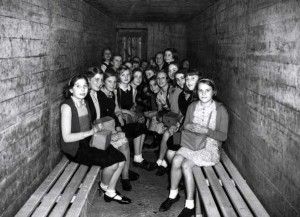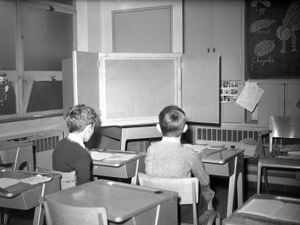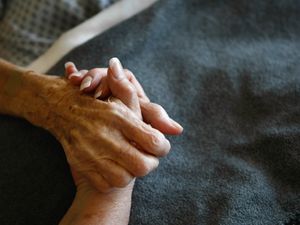What was so good about the past?
There seems to be a rose-tinted belief that bygone days were happier and easier.

That maybe so for the moneyed elite.
Those of us who lived in the real world way back then saw it in a different light.
So, how far back do you go? Let’s start just within living memory. My father is 90, one of 10 East End kids, his father was a cigar maker and, when not sweating for a pittance, had a market barrow down Petticoat Lane, and one down Borough Market. All this just after the First World War.
Then the depression kicked in, along with the fascists, the battle of Cable Street, no telephones, TV, welfare state, sub-standard housing and having to suffer the iniquitous call on system at the London docks. Life for little Mick Levy, the youngest of the family, was not rose-tinted, it was bloody hard. The mean streets of the East End docks was unforgiving. The Second World War produced its own hardships for ordinary working folk, which takes us to the baby boomers, my generation.
I am one of four siblings. My father struggled to provide for his family.
As an electrician he was at the mercy of rapacious employers. Us kids were shielded from the realities of post war rationing but we all survived, unlike two of my father’s siblings, who died in infancy. Our life in the late 50s and early 60s were spent on the bomb sites, they were our playgrounds, no mobile phones, no continuous pop music on the wireless, no Xboxes or computers. Hand me down clothes were normal and foreign food was unheard of and, on Wednesday afternoon, all shops shut, the same on Sundays.
No rent controls. Landlords could chuck people out of their rented flats and houses at will. Booze was only available from off-licences and pubs, and the only car owners were the professional classes. In the great smog of 1952, 4,000 people died – no clean air act then.
The organised gangs of London were running rings around the police and the vice squad operating in central London were more corrupt than the people they were trying to catch. Politicians were mired in sex scandals and corruption, with Kristine Keeler and Mandy Rice-Davies, and Burgess, McLean, Philby and Blunt selling secrets to the Russian KGB.
Then we have the ground nut debacle, millions spent in Africa to produce peanuts, and not one grown. And let’s not forget the Suez crises, where the British government had to back down and pull out in disgrace.So tell me, just what was so damn good about the past?
Because today, with instant communications, a welfare system out of control, free press, the clean air act, rent controls, food banks, more CCTV cameras than any other country in the world, and politicians that sometimes see the big picture, life for Joe Average is infinitely easier and relaxing.
And, if I want to jet off to Spain or Timbuktu, I can.
No doubt today’s teenagers will in the future bemoan the fact that their life was hard, they had it rough, and ‘We were so hard done by’, it’s all relative. And please don’t tell me the past was so much easier, it bloody wasn’t, ask my father, he spent two years in Burma and Malaya, and my mother, bombed out, twice.
Tony Levy, Wednesfield





